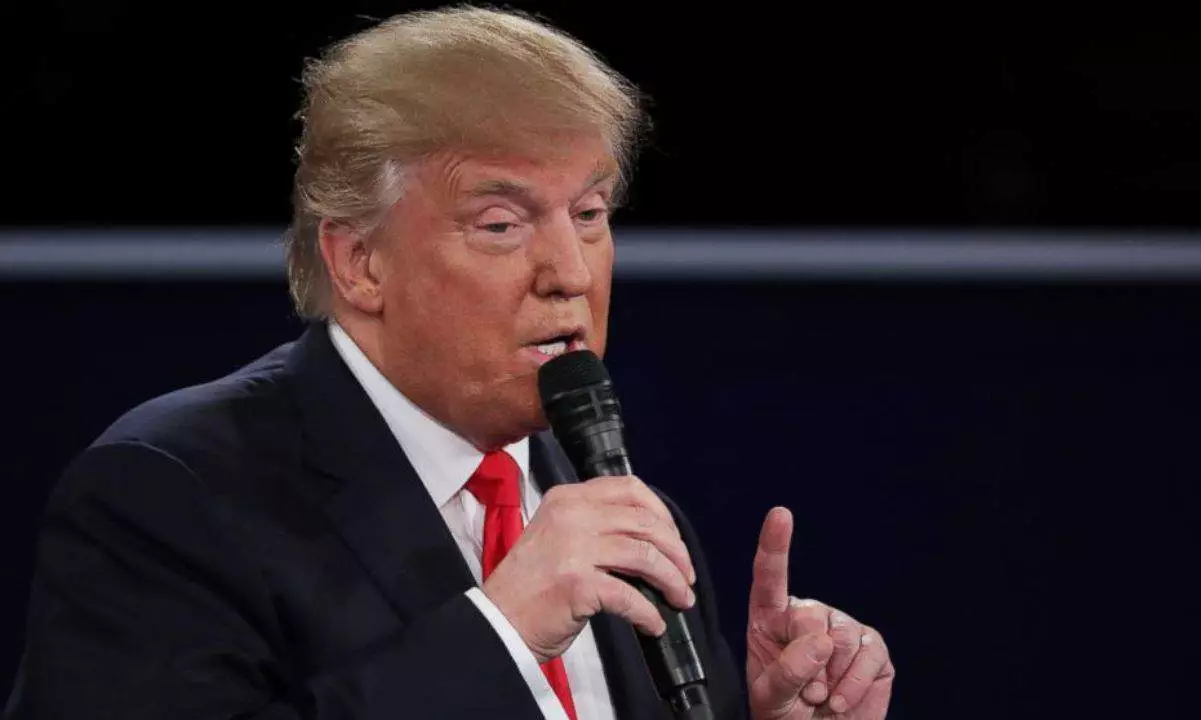In an unprecedented move, former President Donald Trump granted pardons to the founders of the Seychelles-based cryptocurrency exchange BitMEX in March 2024. This decision has not only caught the attention of the crypto community but also raised significant questions about the integrity of regulatory frameworks in the United States. The pardons come on the heels of a guilty plea by BitMEX for violating the Bank Secrecy Act—a conviction that carried a hefty $100 million fine from the U.S. Department of Justice. The apparent leniency shown towards a company that undermined crucial anti-money laundering protocols beckons a deeper conversation about the balance between entrepreneurial innovation and regulatory compliance.
Critics argue that the pardoning of BitMEX could set a troubling precedent. It raises the specter of a two-tiered justice system—one favoring those with political connections or substantial wealth. While some see Trump’s decision as a validation of the crypto pioneers who are often viewed as good-faith actors in a nascent economy, others perceive it as a blatant willingness to undermine rule of law for political gain. The crypto space is already awash with speculation about future pardons for other controversial figures, including Sam Bankman-Fried and Changpeng Zhao, further deepening divisions within the community.
In Praise of Political Strategy?
At the same time, one cannot ignore the strategic brilliance behind such bold moves. Trump’s decision to pardon BitMEX’s founders without much fanfare reflects a calculated approach to gain favor with the influential voices in the cryptocurrency sector. Many within this community have been vocal supporters of deregulation, and by siding with them, Trump builds goodwill that may be beneficial for his political aspirations. His alliances with pivotal players in the crypto world may pay dividends as he aims to rally support for his reelection campaign.
But this tactic of courting the crypto elite comes with risks. Many of these founding figures have complex backgrounds that intertwine with regulatory noncompliance, and pardoning them sends a message that compliance is negotiable. Is this truly the future of American justice? Are we asserting that wealth and influence can overshadow the importance of accountability? The question remains contentious as the cryptocurrency realm continues to disrupt traditional financial systems.
The Complicated Narrative of Financial Justice
Further complicating this scenario is the historical landscape of cryptocurrency and its reputation for fostering innovation while also courting risks. Founders of exchanges have, in many instances, faced backlash and legal scrutiny, often branded as scapegoats for the systemic failings in regulation. Arthur Hayes, BitMEX’s founder, transitioned from a tech-savvy entrepreneur to a convicted felon—a journey that many in the community argue was engineered for political expediency, rather than justifiable law enforcement action.
Hayes thanked Trump publicly, suggesting that the pardon was not just a reprieve but an endorsement of the belief that entrepreneurs shouldn’t be penalized for navigating uncharted territories. If the intention is to incentivize innovation, can society truly afford to hold these figures accountable under antiquated laws that may not appropriately apply to cutting-edge technologies like cryptocurrency?
The Ripple Effect of Transparency and Accountability
These pardons lead into larger issues of transparency and accountability. What does a legal system look like that accommodates financial innovators while ensuring that laws function effectively? While the desire to maintain a positive atmosphere for business growth can make regulatory frameworks cumbersome, investors and clients require safety nets to remain protected. The fallout from BitMEX’s irresponsible practices influenced countless investors and left many questioning their trust in the cryptocurrency market altogether. Creating a balance that safeguards investor interests while promoting innovation is a delicate dance, one that must be navigated with wisdom and foresight.
The landscape of cryptocurrency continuously evolves, presenting a labyrinth of complexities where tightly-knit communities emerge around innovative technologies. Each step taken in regulatory action or presidential pardon sends shockwaves through this ecosystem. In this context, the verdict on Trump’s BitMEX pardons will linger far beyond fleeting headlines. It will likely shape the dialogue regarding appropriate governance in crypto as well as the ethical considerations of entrepreneurship in America for years to come.
The Uncertain Road Ahead
Despite the storm debates brewing in political and legal circles, the cryptocurrency community finds itself at a crossroads—not just because of Trump’s actions but also due to the inherent challenges that come with mainstream adoption of digital currencies. The pardoning of the BitMEX founders and potential future implications beckon reflection on several facets: governance, accountability, and the fundamental principles driving America’s financial and legal systems.
As speculation arises around names like Sam Bankman-Fried and Roger Ver, one can only wonder if the friction between innovation and legislation will lead to a wave of pardons that could reformulate the expected relationship between policymakers and tech pioneers. All the while, the pressing need for ethical clarity and robust regulatory frameworks remains paramount; without these, the journey of cryptocurrency continues to tread a fine line between revolutionary opportunity and reckless abandon.

